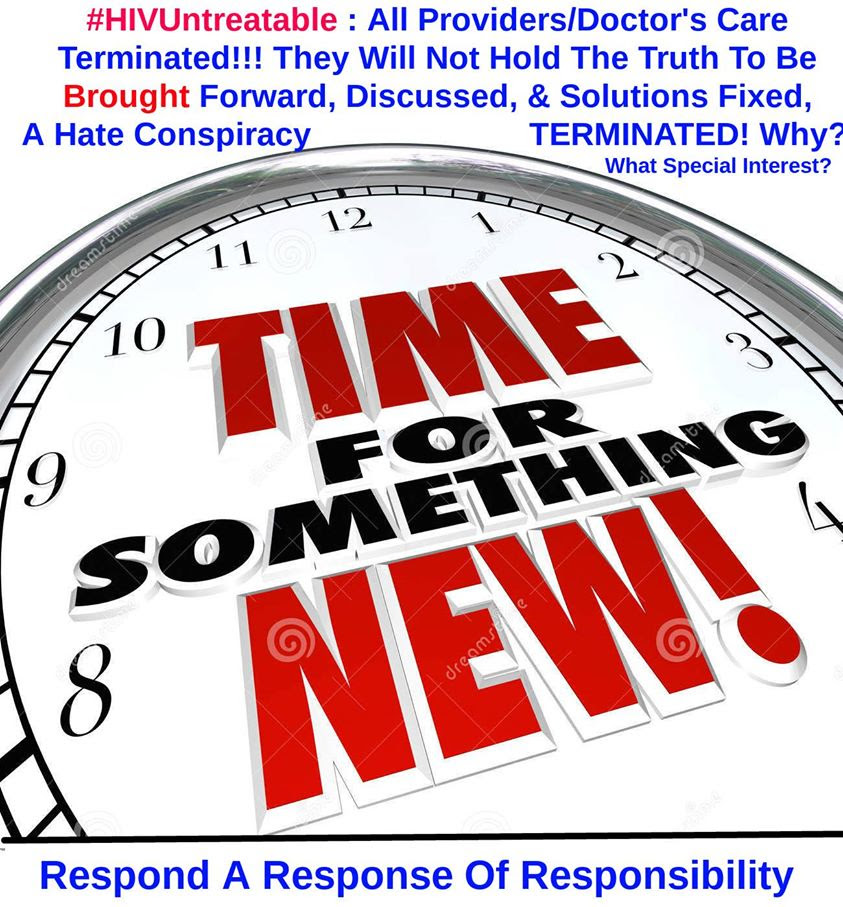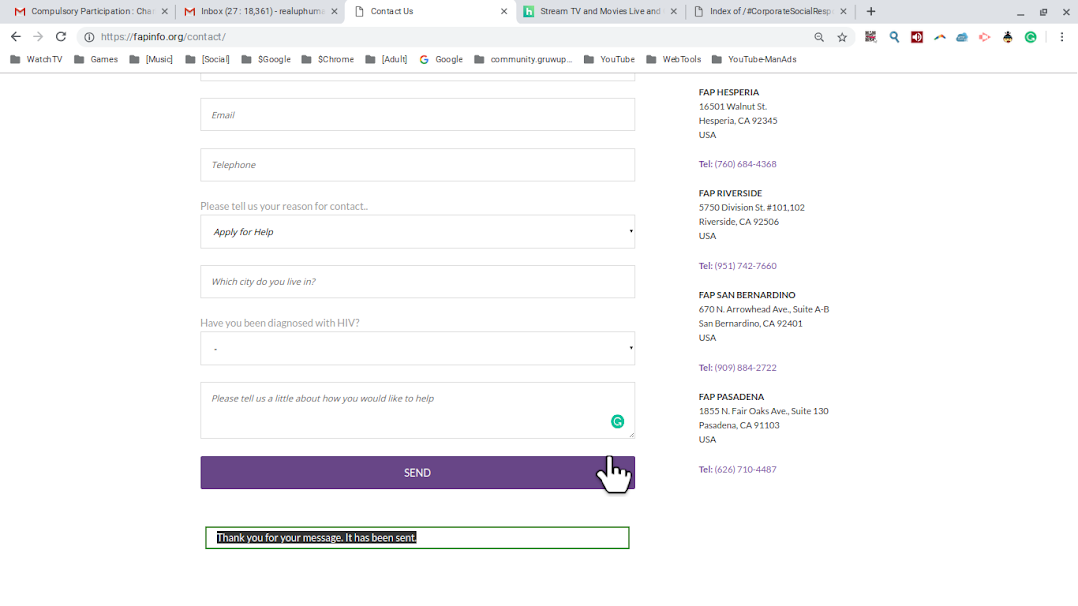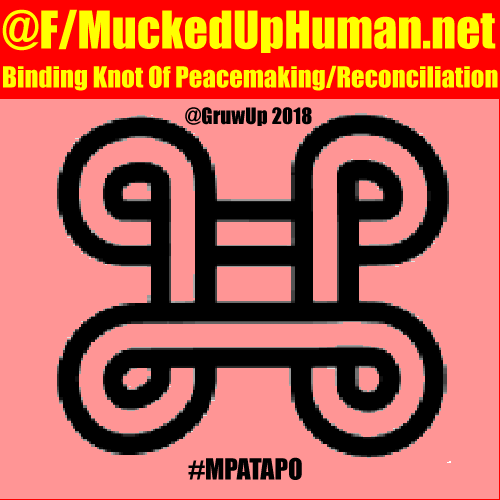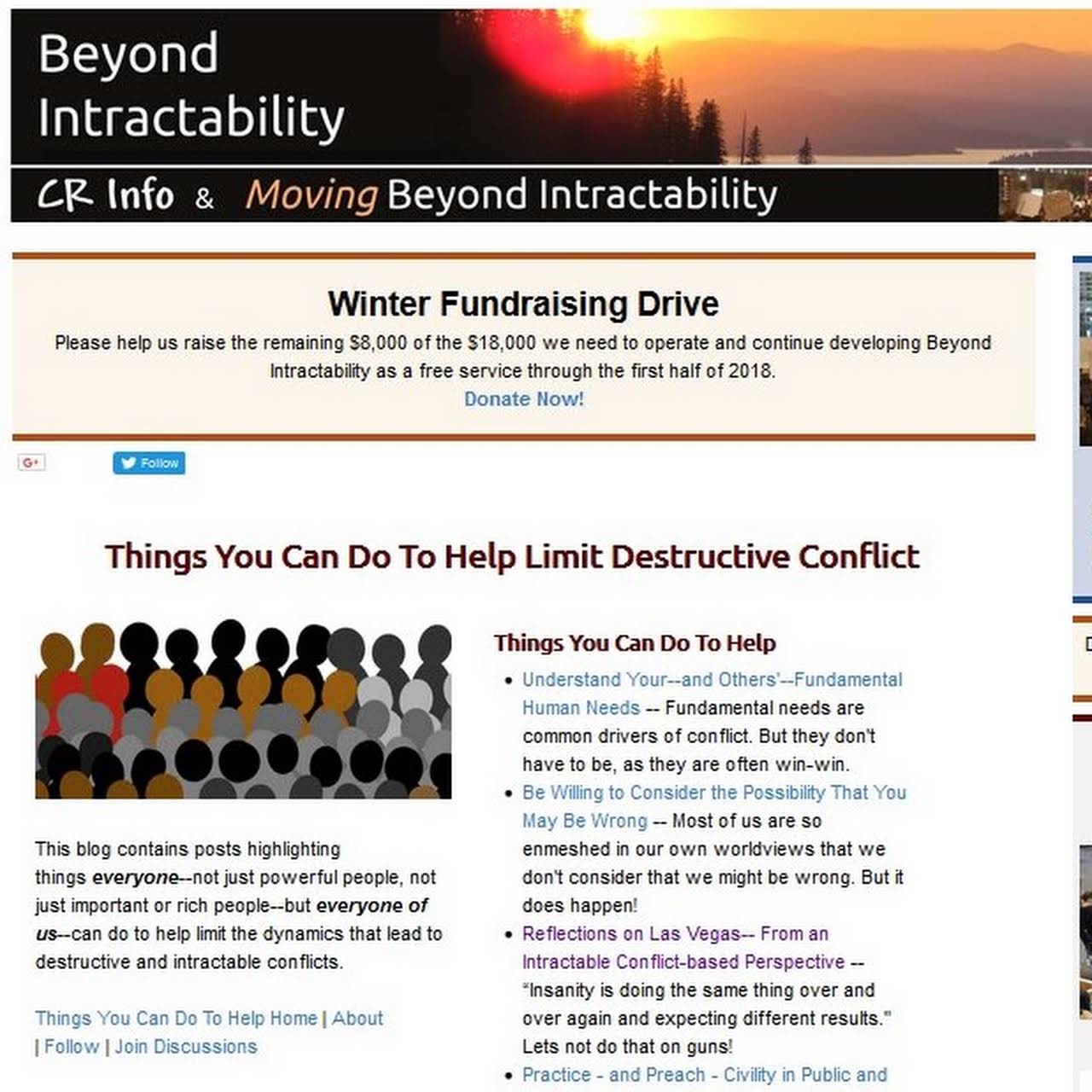[
Your wayward truth holder --- requesting reconciliation meeting -- we
can't proceed like this is an accepted standard hold your operations to a
"quality services" check ]
A PRIMER OF CONSENT:
I
have a record of every single message I have sent --- that has
absolutely no response offered by your organization except one, it was
in the subject of "housing",
That response is filed here:
This html web interface documentation has a spoken voice text narrative interface.
You
cannot break this standard to claim you will accept this communication
based on your objection to language. This is because [1] I have a
1st amendment right to speak in any form I wish to speak that is a
standard applied to language. [2] On LinkedIn, the largest and
most recognized "Professional's level of social media networking site
interface, the use of the "fuck" word is used in "actual in operation"
company name profiles on that site. As that standard then applies to the
professional's standard across the web in general, it must be
"mandatory" adapted to be that standard in all business correspondence
communications [ including this one here ]. Such company names
include [ but not limited to ], "Fuck Cancer", "Fuck Yeah Astrophysics",
"Fuck Rassism", and "Fucked Up Design". In order for these
companies to be in operation with those names appropriately affixed onto
their business operations, the name "Fuck" appears directly as is with
no substitutions on their business operation licenses. Otherwise,
if it was not on such an entity, it would have to be used in the "dba"
section, which in these cases are not represented. Actually
further to endorse this standard would be that there are actual in
operation technology active web presence internet domains that mirror
the naming convention for these actual in operation company name
organizations [ you being an organization that is in operation
cross-applying they have the same right as you, I have the same right as
you, and you have the same right as us ], to exchange and reply onto
your received communications as if you were an adult about these
matters. Fuckeduphuman.net is just an extension of this
professional's standard established by LinkedIn and that is who you are
interfaced to in an attempt to interface an agency to client interface
and to which this correspondence is intended to break that boundary of
discrimination that is obviously being applied by your actions upon
me. You will not be adult and professional about your business
operations, its presence and accountability onto its operational status,
and for that operation to actually not be injuring the community to
which you serve. In that we are seeking to cross define operations and
their authority to hold operations that are not injuring the community
at large, they have their right to operate, without interference, I have
my right to operate without interference, and of you if you are
operating with sound quality of intent to serve the community properly,
you have your right without interference to operate. But one of
these expressions is not like the others.
I
emailed and had an exchange with "Fucked Up Design" and "Fuck Yeah
Astrophysics" with absolutely no problem. I sent them an email and
they responded within 48 hours as typical use of email responsibility
ensures. I have double duty to hold my email sound, in that I have
open definable inbox naming conventions for my internet domains [ which
would include content removal requests ] for my 5 internet domains that
are routed to my inbox differently so that these communications are
treated and able to be replied upon responsibly. I have to my best
ability to know, I have never received a complaint directly emailed in
writing for any of the content I am currently hosting, nor a content
removal request, to include such a request from your organization, for
the content that I have holding [ binding ] to your organization for the
intentioned purpose for which it is to be purposed why I have such
contents applied and held onto my internet domains.
As
such, there is a time that is called "silence gives consent" as an
option I hold onto these circumstances that I am going to process and
structure a "default agreement" that if you do not reply --- that this
arrangement is going to be "binded" into presence --- which I then will
proceed forward with that arrangement approved by your lack of
response. You see, let's put in words of "understanding" and
"teaching" consent.
I am providing an excerpt
to an online "educational paper" applying the constructs and concepts of
"consent". This has the discussion points of what is a default
agreement established by your not responding equally on the basis of
respect and deserved response to a condition of great concern to
the quality of care in client interface, lack thereof, and how such a
lacking quality of care actually can, does, and perhaps has cause the
preventable and unnecessary deaths of persons living with HIV/AIDS that
you are supposed to be serving, and you are not. This has already
been sent to you in standard email corresponding channels, and I have
given ample opportunity for you to respond to its premise. This
"contact us" technology tool of communication channel provides to me an
auto-confirmation receipt that this content was directed to you, as it
is addressed, you have a copy of it in full, and that you refuse to be a
"responsible" operating entity within the field of Ryan White Care Act
funded social services because you refuse to participate in direct
relevant business operation communications. We are equals even if I
have no direct registration company name profile or operating license
because I don't need one as long as I am not actually conducting
financial operations, which just may change as of May 1st, 2019.
I
will apply and follow through with the necessary requirements to be
able to conduct financial operations to the intention consent agreement
that will be entered into what I have expressed in:
---
THE SOCIAL CONTRACT
James Fieser
10/1/2017
Clarke’s Criticism: Punishment Alone will not Motivate Us to Always Keep Contracts
Suppose
that I agree to participate in the social contract. Although I
understand that I’m supposed to keep the agreements that I’ve made, I
occasionally see potential opportunities to violate these agreements
when it might benefit me. For example, while my neighbor is not looking,
I could sneak next door, steal his lawnmower, and sell it to a
pawnshop. If I’m careful, I will not get caught. So what should stop me
from violating the social contract if I can get away with it?
British philosopher Samuel
Clarke (1675–1729) draws attention to this problem and argues that
ultimately Hobbes’s theory offers no safeguard to ensure that we will
keep our agreements in such situations:
If the
rules of right and wrong, just and unjust, have none of them any
obligatory force in the state of nature, antecedent to positive compact,
then, for the same reason, neither will they be of any force after the
compact, so as to afford men any certain and real security; (excepting
only what may arise from the compulsion of laws, and fear of punishment,
which therefore, it may well be supposed, is all that Mr. Hobbes really
means at the bottom.) [Discourse, 1]
Clarke
argues here that, if we are not motivated to follow moral rules in the
state of nature, then we will not be any more motivated to follow moral
rules once we enter into the social contract. Clarke recognizes that
fear of punishment may provide some motivation to follow the rules, but
he claims that this is not enough. For Clarke, our main motivation to
follow moral rules comes directly from an awareness of eternal and
immutable moral truths themselves—and Hobbes denies this as a source of
moral obligation. In short, according to Clarke, fear of punishment is
the only source of motivation that Hobbes provides, and that is not
sufficient to motivate us to always keep our agreements.
Hobbes addresses this issue
himself, agreeing that someone might reason as follows: “There is no
such thing as justice . . . [and that for someone] to make or not make,
keep or not keep, covenants was not against reason, when it conducted to
one’s benefit.” Take, for example, someone that we can call a sneaky
contract breaker. He knows the terms of the social contract, and
verbally agrees to them, but thinks he’s clever enough to break the
rules without getting caught. However, Hobbes suggests that this
line of reasoning is flawed:
He, therefore,
that breaketh his covenant, and consequently declareth that he thinks he
may with reason do so, cannot be received into any society that unite
themselves for peace and defense but by the error of them that receive
him; nor when he is received, be retained in it without seeing the
danger of their error; which errors a man cannot reasonably reckon upon
as the means of his security. . . [Leviathan, 15]
In
other words, according to Hobbes, it is not reasonable for the sneaky
contract breaker to base his own security entirely on his ability to go
undetected. If he is caught, then he will be expelled from society, and,
it is just not reasonable for him to take this risk. So, for Hobbes,
fear of punishment is sufficient to restrain the sneaky contract
breaker.
Hobbes is probably right that we will not take the risk if
there is a good chance that we’d be detected. But what if I plan the
perfect crime, with no reasonable chance of getting caught? That is,
what if I am an extra-cautious contract breaker? In this case, Hobbes
needs another source of moral obligation that goes beyond an immediate
fear of punishment. Perhaps we can rescue Hobbes from this dilemma by
drawing on the virtue component of his theory. Suppose that I carefully
scheme to steal my neighbor’s lawn-mower, and I succeed without getting
caught. As a creature of habit, I am likely to plan similar crimes
against other neighbors, and each time I do I increase the risk of being
detected. By starting down the initial path of theft, then, I am taking
an unreasonable risk since the odds of my getting caught are increased
with each new act of theft. To eliminate this risk, the reasonable thing
for me to do is develop the virtue of justice so that I will habitually
avoid stealing and never even start down that perilous path. So, when I
recognize my tendency to fall into dangerous habits, my fear of
punishment should motivate me to develop consistent virtues, which in
turn will keep me from breaking the rules. Hobbes’s actual comments on
the role of virtues are brief, and he does not offer this specific
solution there. However, in view of Hobbes’s position that “the science
of virtue and vice is moral philosophy,” this virtue-based solution fits
neatly into his overall theory. In short, contrary to Clarke, fear of
punishment, along with this virtue of justice, may be enough to keep us
from breaking contracts, even though we can get away with it.
Hume’s Criticism: We Do not Even Tacitly Agree to a Social Contract
Hobbes
did not believe that there was an actual point in history when people
got together and signed a social contract. However, if the social
contract is not a specific historical agreement, then serious questions
are raised about what kind of agreement it actually is and how it forms
the basis of morality and governance. Hobbes himself tries to address
this problem, noting that we can agree to contracts in either of two
ways. First, we may agree through a concrete verbal expression, such as
“I hereby agree to abide by the terms of the contract.” Second, we may
indicate agreement by inference, whereby, through either our silence or
actions, others will understand that we’ve agreed to something. Social
contract theorists after Hobbes emphasized this second method, which
they dubbed tacit consent. Locke provided the definitive description of
what counts as tacit consent:
Every man, that
hath any possession, or enjoyment, of any part of the dominions of any
government, doth thereby give his tacit consent, and is as far forth
obliged to obedience to the laws of that government, during such
enjoyment, as anyone under it. . . [Two Treatises of Government (1690),
2.119]
Thus, according to Locke, if I obtain
any possession or benefit from a government, then I’ve tacitly agreed to
abide by the rules of that government. For example, if I rely on
protection from the local police or the U.S. military, then I’m
receiving a benefit from these government agencies and thereby tacitly
agree to their rules.
Scottish philosopher David Hume (1711–1776)
was not satisfied with this notion of tacit agreement. According to
Hume, willful consent is the key element in any agreement—including
tacit agreements—and virtually no one has willfully consented to the
authority of their governments:
A tacit promise
is, where the will is signified by other more diffuse signs than those
of speech; but a will there must certainly be in the case, and that can
never escape the person’s notice who exerted it, however silent or
tacit. But were you to ask the far greatest part of the nation, whether
they had ever consented to the authority of their rulers, or promised to
obey them, they would be inclined to think very strangely of you: and
would certainly reply, that the affair depended not on their consent,
but that they were born to such an obedience. [Treatise of Human Nature
(1739–40), 3.2.8]
Hume argues that most people
believe they were simply born into a condition of obedience. In fact,
according to Hume, based on the idea of a line of succession,
politicians try hard to trick people into believing that governments
have natural authority over their citizens. Our current rulers claim
that many years ago an earlier generation of citizens tacitly consented
to a specific government, and governments today inherit that authority
over us. Since we cannot go back in time and interview that first
generation of citizens, we accept the politicians’ story and see
ourselves as born into a condition of obedience. In short, we are
tricked into accepting governmental authority, and neither we nor
earlier generations of citizens ever tacitly agreed to a social
contract. Ironically, Hume feels that this deception is actually a good
thing. We need governments for our own protection, and if governments
are forced into tricking us into accepting their authority, then so be
it. The fact remains, though, that there neither is nor ever was a valid
social contract that people tacitly consented to.
Hume is correct that people do
not willfully consent to the terms of a social contract—either
explicitly or tacitly. Critics after Hume recognized this problem, and
British political philosopher William Godwin (1736–1836) highlights a
range of related conceptual problems with terms of the social contract:
Upon
the first statement of the system of a social contract, various
difficulties present themselves. Who are the parties to this contract?
For whom did they consent, for themselves only, or for others? For how
long a time is this contract to be considered as binding? If the consent
of every individual be necessary, in what manner is that consent to be
given? Is it to be tacit, or declared in express terms? [Enquiry
Concerning Political Justice (1793), 3.2]
--------------------------------------------------------------------------------------------
Definitions of Consents:
Tacit Silence / Spoken Expressed
Implied Declarations:
Unconditional Stipulation 1 :
There is no OPT-OUT of this binding mirroring triad naming memespace
web presence. ** Content Removal Requests May Be Denied and Withheld
In Preference of building peaceful resolve new understandings **
Unconditional Stipulation 2 :
@Gruwup.net : Great Reasons Us Will Unite Peace
A definition of tense, reflecting an adult oversight as being
a grown-up [ or grew up ] maturity of conscience with a
preference for moral wisdom, virtue, and guidance.
Unconditional Stipulation 3:
@Realuphuman.net : Applying #Kramobone, Honesty Binding,
of conscience with a preference to all parties to hold honesty, truth,
and purity of thought in all discussions and negotiations.
Unconditional Stipulation 4:
@Fuckeduphuman.net : Obviously Binding Of Memetically Active
Properties.
One
generally would not prefer their individual persons' real name(s) or
their company collective organization name(s) holding/binding onto this
web presence internet domain. This pretty much at any time for any
reason for any purpose in such an extreme lexicon of this unusual and
perplexing use of the "fuck" word that defines a binding presence upon
our informational society that cannot just be ignored.
Having
such bindings would cause a condition of altered presence of consent
upon the foundations of thought. This by either in silence tacit
arrangements or expressively declared terms of consent and
agreements.
Where the tacit
silence is broken [ or disturbed ] from its default applied tacit
consent and should, or would, or could draw a process of constructed
consulting to a state of conditioning arrangement to form an absolute
unconditional discourse within either formal contracted procedures or
informal discussions, understandings, agreements, and signed approved
covenants.
This to reconcile,
resolve, and absolve disagreements and conflicts fully by compelling all
parties to an arranged discussion of implicit speech necessity.
In that necessity, the legal classification of "legal necessity" [ the lesser of two evils ]
can
be community duty bound declared to hold parties accountable for actual
harms being conducted upon our communities and our greater
society.
In typical arguments of
this legal standard, the action has already been done by the lesser of
harming party(s). These actions would have to be defended by this
legal class of argument. This is not the preferred outcome being
introduced here.
Something can be forced into
existence before the lesser of harms are actually performed and any
irreparable harms can actually be avoided from being done.
This has been very well considered a different paradigm process of relationships upon all human events.
Without
this new paradigm, we have an unstoppable intractable condition of
devolved states of digressions that is holding us to accept the
allowance of a wicked problem that can never be challenged to hold
"moral agency" of rights over wrongs into an account that takes the next
stage step upward to new upper tiers of reckoning concern.
This
in silence or disrespected disregard without this forced consideration
of collective intelligence collectively giving this new form of forged
consent into existence. This can be done without an actual act
violating the law.
This forced
arrangement is legally permissible under this legal necessity argument
where doing nothing or holding silence for holding no cause action is a
greater harm than discourse and reconciliation.
This
when there has been no prior social contract established. Also,
this considered when there have been no actual protections offered by
the government oversight to protect and ensure the safety and security
of a citizen's class, in this case, persons living with HIV/AIDS in the
United States of America. Federal oversight has failed to meet the
standard of the rest of the world and that lacking standard thus has
allowed individual agencies to proceed to an injury affect onto the
community. This by not applying their fiduciary duty as a
non-profit to meet the needs of the community to which any Ryan White
Care Act has the responsibility and duty to meet criteria of reporting
criteria that establish a periodic audit of this reporting. This
has not been done in these cases. In such, the consent to agree to
be held within the legal requirements of any said forth government
authority has to be considered in this case null and void replaced by
"legal necessity" to protect lives that are [ present tense ] falling to
illness by HIV/AIDS disease to premature, unnecessary, and preventable
death,.
A new contract is or will be, set forth into new actions and motions.
This
to hold parties of individual persons or parties of collective business
organizations as commerce business processing defined shall give us
collectively made agreements upon our needs that are binding by a
different set of priorities. One which hopefully focuses on our
collective basic human needs upon the discoursed and agreed upon
circumstances.
This holding a controlled
outcome for all of us to rely upon for any future time needs as we
progress upward into peace bridging models of reconciliation and
understanding.












